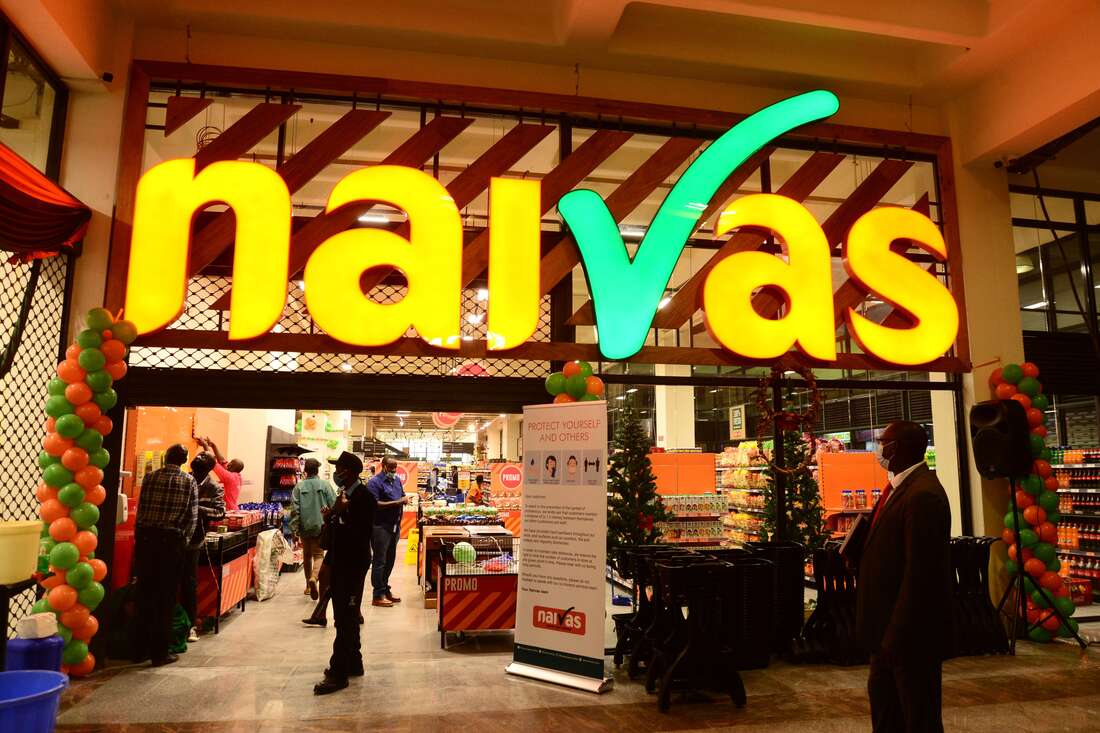Business
Naivas Closure Row Pits Moses Kuria Against Sakaja as Jobs and Public Health Hang in the Balance

In the battle between economic interests and public health, Moses Kuria has thrown his weight behind profit.
The senior economic advisor to President William Ruto has condemned the Nairobi County government for ordering the closure of Naivas Supermarket over health violations.
Kuria believes the move is reckless and damaging to the economy. But critics say Kuria is turning a blind eye to serious health concerns flagged by the Nairobi Health Committee.
The clash between Kuria and Governor Johnson Sakaja’s administration has stirred heated debate on what matters more—profit or public safety.

The Naivas clash exposes a deeper battle—Moses Kuria backs big business, while Nairobi officials demand accountability to protect public health. [Photo: Courtesy]
Moses Kuria Defends Naivas Closure Backlash as Necessary for Investor Confidence
Moses Kuria has come out swinging against the Nairobi County government for ordering the closure of Naivas Supermarket over claims of expired food items and uncertified workers. Posting on his official X account, Kuria warned that the closure of one of Kenya’s largest retailers sends the wrong message to investors.
“We will not create jobs when county governments wake up and close Naivas and Carrefour arbitrarily. You don’t attract investors by acting whimsical,” Kuria wrote on May 14.
Kuria, who serves as President Ruto’s Senior Economic Adviser, accused the county of chasing away capital at a time when the country is struggling with high unemployment and inflation.
To him, the shutdown of major retailers like Naivas not only disrupts business operations but also sends shockwaves through the entire investment climate of Nairobi and Kenya at large.
Naivas has more than 30 outlets in the capital, employing thousands of Kenyans. From Kilimani to Lang’ata and Buruburu to Kasarani, the chain provides jobs, supports local suppliers, and fuels daily commerce.
Kuria believes disrupting this ecosystem, even temporarily, threatens to undo years of economic progress. While the Nairobi Health Committee insists it found expired yogurt and items with missing expiry labels at the Moi Avenue branch, Kuria brushed off the concerns as flimsy grounds for such drastic action.
His stance has sparked a national debate. Is Kuria protecting jobs or excusing negligence? Should economic stability come at the cost of consumer health?
Health Concerns at Naivas Trigger Controversial Closure
The closure order was issued after Nairobi MCA Maurice Ochieng and the Health Committee conducted a surprise inspection at Naivas Moi Avenue branch.
What they allegedly found alarmed them—expired dairy products and items without clear labeling. Ochieng also pointed out that some staff members lacked proper health certification.
“We are here at Naivas Moi Avenue, and we have realised that there are expired products on the shelf, putting Nairobians at risk,” Ochieng stated.
These findings prompted the committee to demand an immediate shutdown to protect the health of Nairobi residents.
Public outcry quickly followed, with many Kenyans applauding the move as a necessary check on corporate responsibility.
However, Naivas hit back within hours. In a firm statement, the retailer said, “No expired products have been found on our shelves.” The company dismissed the allegations as false and potentially harmful to its brand.
Naivas went further to deny any closures had taken place. It called on the public to disregard the misinformation and assured customers that operations at all branches would continue without disruption.
Profit vs. Public Safety Debate Heats Up
While Kuria defends businesses from what he calls arbitrary county decisions, critics argue that his position prioritizes profits over public safety.
Public health advocates say expired products on supermarket shelves can lead to serious illnesses, even death. They believe government action, however bold, is necessary when consumer health is on the line.
On the other side, Kuria and his allies argue that such abrupt enforcement can damage business confidence and force investors to rethink Nairobi as a base of operations. This, they say, could lead to job losses and reduced economic growth—especially at a time when Kenya’s economy is already on shaky ground.
The clash reveals deeper tensions between national economic advisers and county-level regulators. While Kuria champions investor interests, Nairobi’s health authorities insist they are acting in the public interest.
What’s clear is that the Naivas closure incident has pushed Kenyans to confront a hard truth. Balancing economic growth with public accountability is no easy task. But when one side pushes too hard, the consequences ripple far beyond a single supermarket branch.
Kenya Insights allows guest blogging, if you want to be published on Kenya’s most authoritative and accurate blog, have an expose, news TIPS, story angles, human interest stories, drop us an email on [email protected] or via Telegram
-

 Grapevine2 weeks ago
Grapevine2 weeks agoRussian Man’s Secret Sex Recordings Ignite Fury as Questions Mount Over Consent and Easy Pick-Ups in Nairobi
-

 News1 week ago
News1 week agoTHE FIRM IN THE DOCK: How Kaplan and Stratton Became the Most Scrutinised Law Firm in Kenya
-

 Investigations2 weeks ago
Investigations2 weeks agoMulti-Million Dollar Fraud: Three Kenyans Face US Extradition in Massive Cybercrime Conspiracy
-

 Economy1 week ago
Economy1 week agoIran Demands Arrest, Prosecution Of Kenya’s Cup of Joe Director Director Over Sh2.6 Billion Tea Fraud
-

 Business1 week ago
Business1 week agoA Farm in Kenya’s Rift Valley Ignites a National Reckoning With Israeli Investment
-

 Africa2 weeks ago
Africa2 weeks agoFBI Investigates Congresswoman Ilhan Omar’s Husband’s Sh3.8 Billion Businesses in Kenya, Somalia and Dubai
-

 Grapevine5 days ago
Grapevine5 days agoA UN Director Based in Nairobi Was Deep in an Intimate Friendship With Epstein — He Even Sent Her a Sex Toy
-

 News2 weeks ago
News2 weeks agoTragedy As City Hall Hands Corrupt Ghanaian Firm Multimillion Garbage Collection Tender




























